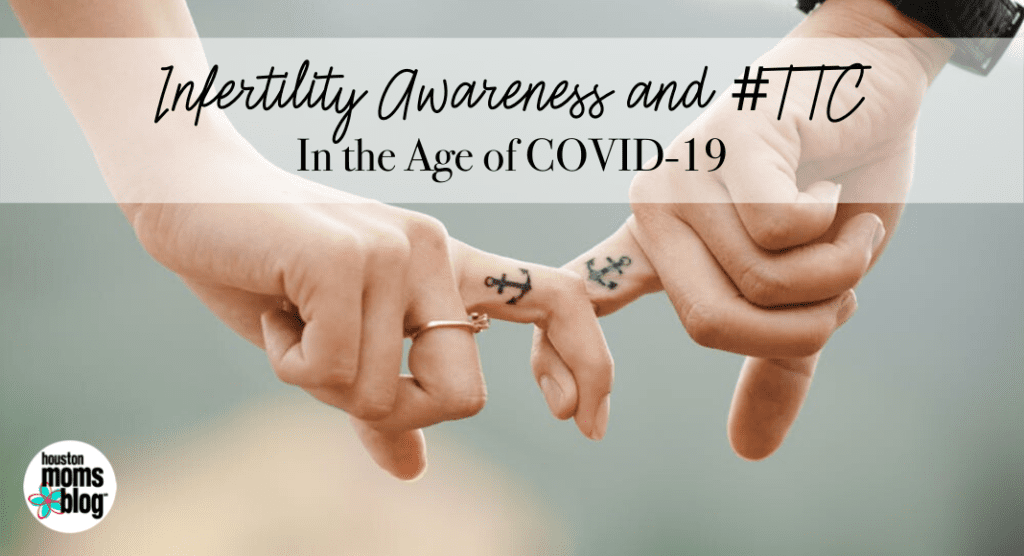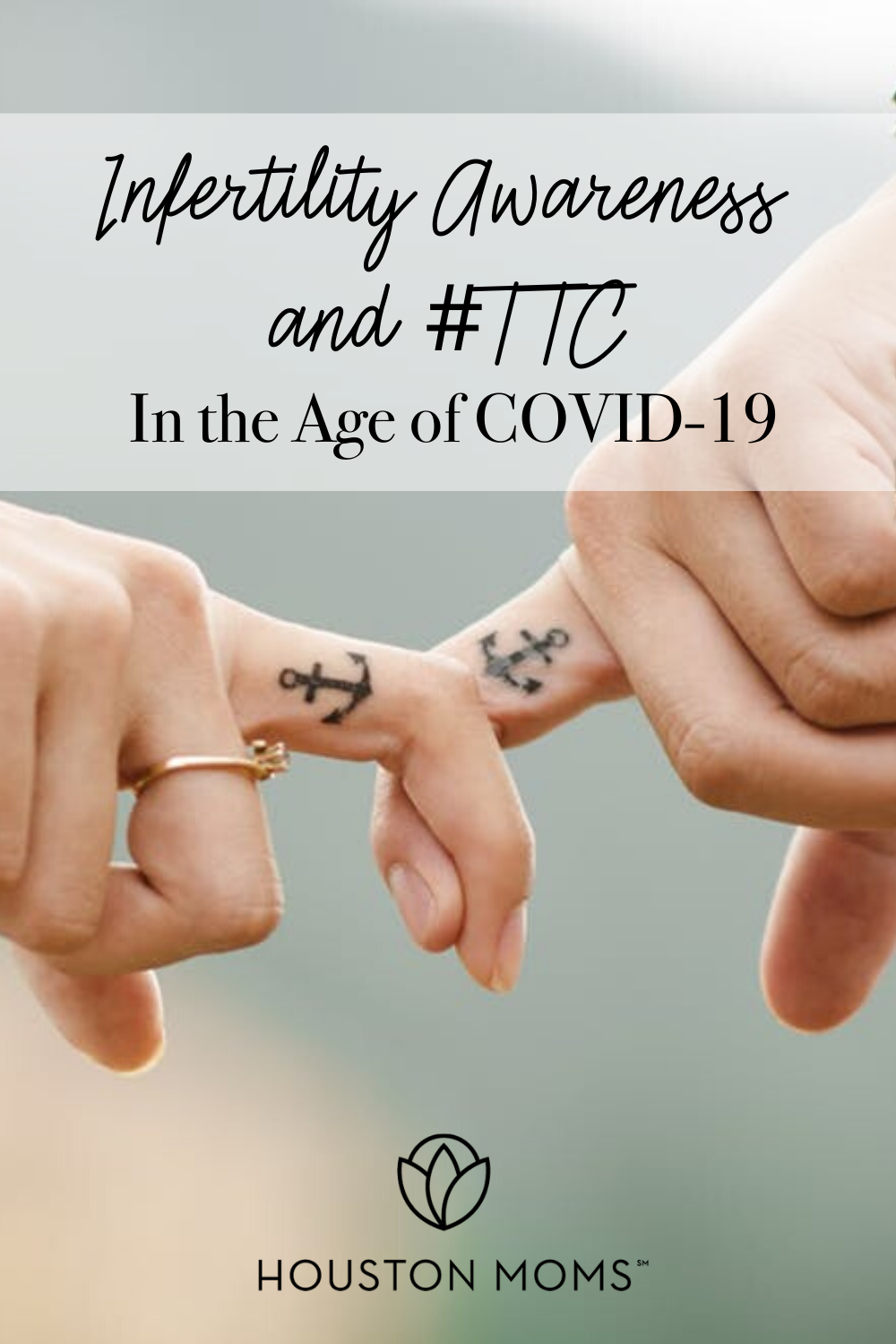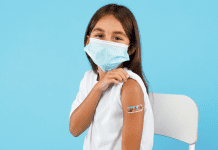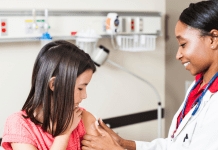 Each April, mixed in with the excitement of springtime and Easter bunnies, I make sure to support National Infertility Awareness Week {NIAW}, recognizing the 15% of heterosexual couples in the U.S. that face infertility, as well as all the other women, men and couples that rely on fertility treatment. Whether it’s LGBT or single parents, or those freezing eggs, sperm or embryos because of impending cancer treatment, planned gender transition, or simply because parenthood is not yet in the cards, there is an increasing slice of the population turning to reproductive technologies as part of their family-building journey. As a fertility specialist, it does feel like every week is NIAW in my life, and I love the diversity of situations and families I get to be a part of. But this year is a little different.
Each April, mixed in with the excitement of springtime and Easter bunnies, I make sure to support National Infertility Awareness Week {NIAW}, recognizing the 15% of heterosexual couples in the U.S. that face infertility, as well as all the other women, men and couples that rely on fertility treatment. Whether it’s LGBT or single parents, or those freezing eggs, sperm or embryos because of impending cancer treatment, planned gender transition, or simply because parenthood is not yet in the cards, there is an increasing slice of the population turning to reproductive technologies as part of their family-building journey. As a fertility specialist, it does feel like every week is NIAW in my life, and I love the diversity of situations and families I get to be a part of. But this year is a little different.
COVID-19 and Its Impact on Infertility Treatments
For so many mamas out there, myself included, the COVID-19 pandemic has impacted our mothering. Through the new challenges of homeschooling and curriculum planning, entertaining your kiddos 24/7 while #socialdistancing or stressing over which childcare options keeps your baby safest as a working mother, these are harrowing times. But I know that the preponderance of memes, articles and resources on these mothering topics are hitting my infertility patients hard, each a reminder of the fact that their family feels incomplete. As a result of guidance from our professional society, the American Society for Reproductive Medicine {ASRM}, the vast majority of reputable infertility clinics in the U.S. have temporarily paused starting new fertility treatment cycles. I’ll circle back to the details in a moment, but every time you scroll by a #Coronababies meme, just think of how devastating it would be to watch others chuckle over the ramifications of lots of quarantine couple time if your family-building plans were now on indefinite hold.
So. If you’re #TTC or supporting someone who is, here is what you need to know::
WHAT:: For the vast majority of folks in the U.S., new infertility treatment cycles {egg retrievals, embryo transfers, insemination or even medicated timed intercourse cycles} are on an indefinite pause. The only exceptions being made are for those who need urgent fertility preservation due to impending cancer treatment {which can permanently reduce future fertility}.
WHY:: While we don’t yet know the true impact of the novel Coronavirus {officially SARS-CoV-2} on pregnant women or their fetuses, the preponderance of data on this front is reassuring so far. On the one hand, we want to feel confident that when we help women conceive, their pregnancies will not be at risk. However, all my #IVFwarriors and their support networks know that medically we have the ability to retrieve eggs, fertilize them and then freeze embryos for use at a future time when we feel more confident about the risks of pregnancy. However, the reasons we cannot even go down that path are many:: in an attempt to #flattenthecurve and promote social distancing, to reduce usage of personal protective equipment {masks, gloves, etc.} and to make sure we are not pulling anesthesiologists {who provide sedation for egg retrievals} away from critical duties managing ventilated patients, etc., we cannot encourage the multiple doctor’s visits and procedures required to complete this treatment.
THE CONTROVERSY:: Much of the hurtful debate has centered on the {inaccurate!} description of infertility treatment as “elective”. In many states, including Texas, all procedures not deemed urgent or emergent have been put on hold. National medical and surgical societies, including ASRM, have supported this stance as well. Infertility patients rightly have been very upset to feel as though building their families is in the same category as cosmetic surgery. Rest assured, that’s not the case at all, and I certainly encourage everyone to be clear on this point.
Infertility is a disease just as any other, and treatment is important. For many, it is time-sensitive. However, a delay of a month or two will not change the outcomes, as frustrating as it is. If this treatment hold continues for longer than that, we’ll be having a different conversation! I am also certainly worried about those patients who might lose insurance coverage or take a large financial hit due to the economic ramifications of the pandemic, and lose the ability to pursue treatment as a result. No easy decisions were made here, by the ASRM or by each clinic or physician. I’ve had to have some very difficult discussions these past few weeks, and I cannot wait to be on the other side of all this!
WHAT YOU CAN DO:: If you’re in the #TTC community first of all, don’t lose hope. Given the efforts the U.S. is making now, it seems within reason to hope that some of these restrictions can be lifted within the next month or two. I am also cautiously optimistic that SARS-CoV-2 will not turn out to have serious obstetric impacts, unlike the last serious viral pandemic, Zika. Second of all, make sure you use your quarantine time to improve your health, rather than letting it decline. Chances are that you have more time at home and greater scheduling flexibility, to be meal-planning, cooking, moderating alcohol intake, avoiding other substances, hydrating and getting regular exercise – any and all of these efforts will not only improve your long-term health, but can enhance your fertility, giving you the best shot at success as soon as we can resume treatment.
If you’re not on the family-building road right now, check in on your girlfriends or family members who are – chances are, they are hurting, and could really use some support and recognition of their current stress. Part of the theme to this year’s NIAW is about “changing the conversation” around infertility. My hope is that through all we are going through as a globally-interconnected world right now, we come out on the other side with enhanced gratitude for the family we have and the ability to build families in so many diverse ways. I can’t wait to get back to it!
















